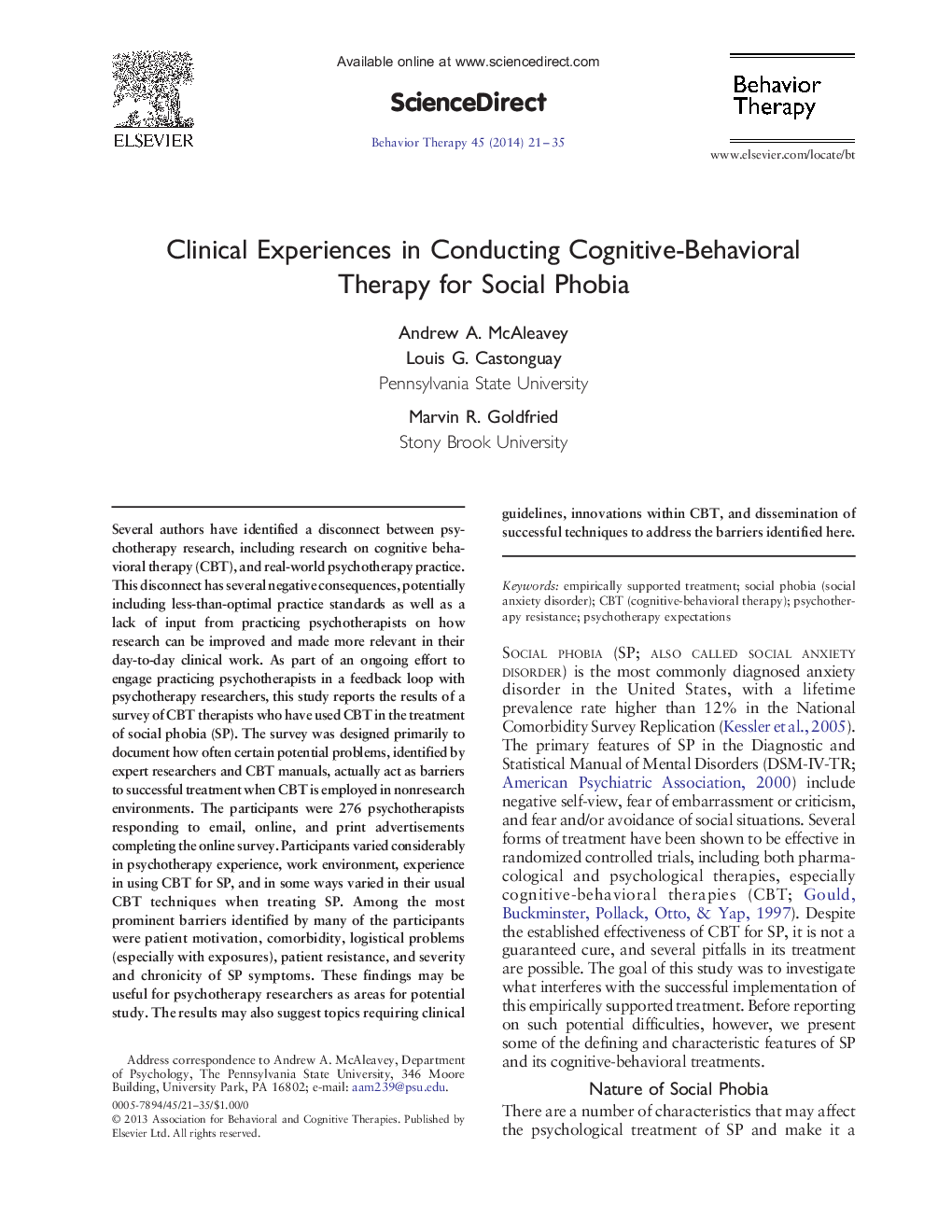| Article ID | Journal | Published Year | Pages | File Type |
|---|---|---|---|---|
| 901239 | Behavior Therapy | 2014 | 15 Pages |
•We conducted a survey of psychotherapists who have used CBT to treat Social Phobia.•Respondents indicated that CBT for SP is effective in over 75% of cases, but areas for improvement in CBT were also noted.•Barriers to treatment efficacy were difficulties with exposure, low patient motivation, and comorbid conditions.•Researchers can use the results of this survey to address the areas of concern among cognitive-behavioral therapists.
Several authors have identified a disconnect between psychotherapy research, including research on cognitive behavioral therapy (CBT), and real-world psychotherapy practice. This disconnect has several negative consequences, potentially including less-than-optimal practice standards as well as a lack of input from practicing psychotherapists on how research can be improved and made more relevant in their day-to-day clinical work. As part of an ongoing effort to engage practicing psychotherapists in a feedback loop with psychotherapy researchers, this study reports the results of a survey of CBT therapists who have used CBT in the treatment of social phobia (SP). The survey was designed primarily to document how often certain potential problems, identified by expert researchers and CBT manuals, actually act as barriers to successful treatment when CBT is employed in nonresearch environments. The participants were 276 psychotherapists responding to email, online, and print advertisements completing the online survey. Participants varied considerably in psychotherapy experience, work environment, experience in using CBT for SP, and in some ways varied in their usual CBT techniques when treating SP. Among the most prominent barriers identified by many of the participants were patient motivation, comorbidity, logistical problems (especially with exposures), patient resistance, and severity and chronicity of SP symptoms. These findings may be useful for psychotherapy researchers as areas for potential study. The results may also suggest topics requiring clinical guidelines, innovations within CBT, and dissemination of successful techniques to address the barriers identified here.
